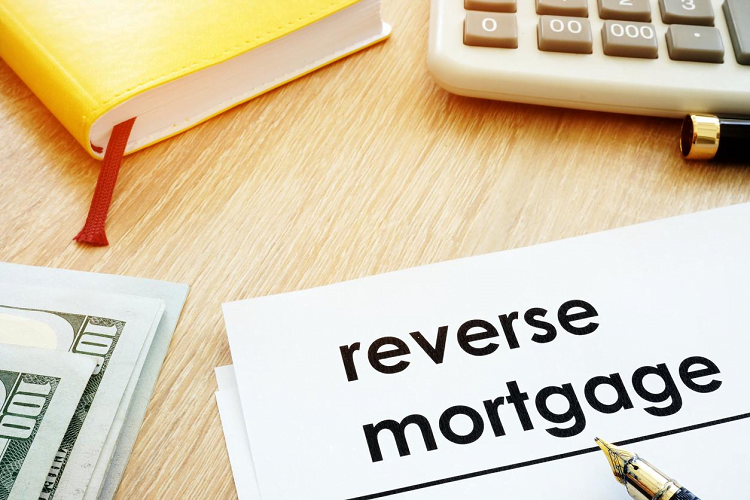As people start planning their lives after retirement, housing becomes a major concern. While things can be taken for granted while you were working and had a steady flow of income, your expenses are now going to be difficult to keep up, whether they are medical or sustenance or entertainment. Most retired Americans may look towards getting a mortgage loan on their houses, in order to live comfortably in their final years. However, this isn’t as easy as it sounds, since most loans are offered to people with high incomes or at least verifiable means to pay it back. Being on a pension or fixed income doesn’t always qualify for a mortgage loan. Luckily, there are some mortgage loans available for retirees, like the reverse mortgage loan.
What is a Reverse Mortgage loan?

Like a regular mortgage loan, a reverse mortgage loan allows the individual to use their house as a collateral for the loan. This allows senior homeowners to apply for a loan with their houses offered up as security for the loan repayment. But unlike a regular mortgage loan, the reverse mortgage loan gives homeowners the opportunity to pay back the loan as a lump sum after they have either moved out of the house or died. A monthly interest rate is charged, which is added to the total amount at the time of payment.
Eligibility for a Reverse Mortgage Loan:
- You must be at least 62 years of age
- The house you are using as security must be in your name
- Your house must be either fully bought or have low remaining mortgage payments
- Housing requirement set by the loan company should met
- You must not have any debts
- You must have some way of repaying the loan
- You will have to agree to meet with a counselor approved by the Department of Housing and Urban Development
Types of Reverse Mortgage Loan
HECM
The Home Equity Conversion Mortgages (HECM) are loans funded by the Federal Housing Administration (FHA), and are the most common type of reverse mortgage loan available. What’s awesome about this loan is that if the total mortgage loan payment amount exceeds the value of your house, the FHA will cover the remaining cost. Of course, you are charged a premium to prepare for this, but in case you don’t need to be assisted in paying off your loan, this premium can be adjusted into your loan amount.
Proprietary Reverse Mortgage
These are similar to HECMs, but do not get a government guarantee. While this type of loan has a more relaxed eligibility criterion, like not needing a financial review meeting with a counselor, these types of loans aren’t easily available in every city, and may not apply to certain types of houses like condominiums.
HECM for Purchase
This type of Home Equity Conversion Mortgage loan is ideal for homeowners who are looking to buy a new home, using their old home as a security deposit. So you will sign the contract on the new house, pay the down payment and use this reverse mortgage loan to pay for the entire purchase amount, versus cash or installments. This helps the retired individual to pay for the new house in one go, without having monthly mortgage payments for it. This type of loan is usually taken by seniors who want to move closer to their families or downsize their living situation.
Single-Purpose reverse mortgage
These are considered the least expensive reverse mortgage loan, but they have the jurisdiction over what the loan is being used for. This limits the homeowner’s options in financial assistance. For example, this cannot be used for paying property taxes, nor can it be used for repairs on the house. These loans are usually available for middle to low income borrowers, and are offered by local and state governments, and some non-profits.
Watch out for scams
There are many contractors out there that will entice seniors post retirement into opting for one of their reverse mortgage loan schemes for less amounts of money and greater flexibility in usage. They often pressure homeowners into getting a reverse mortgage loan, ask for a fee for connecting them to a lender and then disappear. Scammers also have tried to dupe veterans, saying that the Department of Veteran’s Affairs offers reverse mortgage loan. This is not true. While using a broker helps in streamlining the process of getting a reverse mortgage loan, it can be tricky if you aren’t careful about scammers. Companies like All Reverse Mortgage, however, do business directly with the homeowner, without brokers or contractors, giving you a clear cut outline of what to expect.


